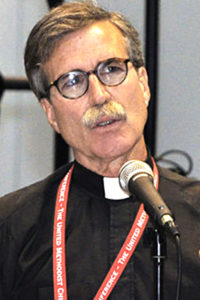Leadership for Life
Whatever a community requires, but lacks, it discusses and seeks.
Consider, for example, leadership. Good leadership is essential for all communities—large and small, nations and cities, corporations and sports teams, congregations and families—to flourish in their various ways. Unfortunately, for decades laudable leadership in our country has been in short supply. (Perhaps the movie Gladiator [2000], with Maximus at the center, was a cinematic plea for genuine leadership in American society.)
Meanwhile, leadership as an academic subject has been an ever-expanding cottage industry in higher education. Simultaneously facing a leadership deficit and a leadership-studies surplus, we might consider five simple principles that could help develop and sustain good leaders:
- Leadership is about being a servant-leader. A servant-leader serves the community, not his or her own interests, and works for its genuine good. A leader does not bully or threaten those under his or her authority.
- Leadership is about having the courage of one’s convictions. A leader has both courage and convictions. A leader is not timid or fearful, not undecided or ambiguous.
- Leadership is about “speaking the truth in love,” as St. Paul put it in Ephesians 4:15 (NRSV). This requires that the leader believes that truth exists. It also mandates that the leader be committed to knowing truth, serving truth, and persuading others to follow truth. It means the leader cannot be a “managerial liberal” who welcomes various perspectives (except the one that claims to serve truth) and insists that all of those perspectives remain in play.
- Leadership is about drawing from the best traditions (and former leaders!) of the community, teaching those traditions and offering a tradition-based vision for what the community should aspire to achieve. The leader strives to renew and reform his community. The leader does not recreate—or destroy and rebuild—the community he serves.
- Leadership is about doing one’s work with hope, humor, humility, and honesty, which includes a willingness to be corrected and admit mistakes made. The leader must show up for work every day and be persistent in service. But the leader does not have to win every argument, every vote, every accolade.
Using these principles, leaders of communities—e.g., senators, governors, mayors, executives, bishops, pastors, teachers, mothers, fathers—can lead others to respect and protect the lives of unborn children.
Today, there is a very real temptation to avoid all discussions related to life and abortion. But wherever and whenever such discussions are avoided, territory is claimed or reclaimed by pro-choice thinking. Such thinking would let all live by their own choices, their own opinions— no more, no less.
Sadly, when pro-choice thought is translated into law—federal, state, or local—unborn children in large numbers are sure to die—and far from the public square. Especially when and where this is happening, leadership—good, solid, virtuous leadership—is required to convince people in various communities to protect “the least of these” (Matthew 25) from the abortionist’s deadly instruments and from Big Pharma’s life-ending drugs.
Leaders, think about your positions. Consider why God has placed you where you are. Don’t avoid the topic of abortion, letting everyone rest easily in their own opinions about ending the life of an unborn child. Propose truths to those you lead: Recall to them that the unborn child is a human being with dignity and rights that come from God. Recall that the People of God, from the beginning, have welcomed children as gifts from God. Recall to them that the unborn child is created by God, redeemed by Christ, sustained by the Spirit, and is worthy of love and protection. Recall that the Church’s faith, from the apostolic era to the present, has considered abortion to be wrong, evil. Lead your community, no matter how large or small, in safeguarding defenseless, voiceless children from the lethal aggressions of adults who know not what they do.
Lead for life.










